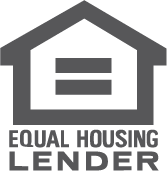Reverse Mortgages versus HELOCs and other options
A reverse mortgage is a financial product designed to provide financial flexibility to mature Americans (age varies depends on products) as they either prepare or plan for enjoying their secure and stable retirement. There are a number of other alternatives to access cash to fund retirement expenses, but reverse mortgages offer some unique features and benefits.
Reverse Mortgage versus a Home Equity Line of Credit (HELOC)

Taking out a reverse mortgage could allow you to access a portion of your home’s value in cash proceeds, while continuing to own and remain in your home (still you must cover the property tax and insurance).
On the other hand, you might consider taking out a home equity line of credit (HELOC). This method also allows you to have access to the equity in your home and receive cash, as you need it. However, there are a few significant drawbacks for seniors.
- Since HELOCs require borrowers to pay interest, the banks or lenders say that ” income stress tests” (verifying work history and proof of steady income) are required before a customer can access the product, meaning many borrowers may not be eligible. This isn’t the case for reverse mortgages, which require no regular monthly mortgage (principal or interest payments).
- If the HELOC balance rises past a certain level, the bank can force the borrower to repay the balance, which usually means selling their home. A reverse mortgage on the other hand has no “loan to value cap,” meaning you can stay in your home as long as you like, no matter what happens to the loan balance or home value.
- If a HELOC balance exceeds the value of the home, the borrower is on the hook for the difference, which can present serious financial challenges for seniors. On the other hand, reverse mortgages are a Non-Recourse Loan, meaning the most you’ll ever owe is the fair market value of your home. This means peace of mind.
FREE CONSULTATION

Reverse Mortgage versus Renting
You may also choose to sell your home and rent a property. This option can provide a cash windfall on the sale of the home. However, it also comes with some downsides.
First, it usually means leaving the home that you love. If you want to spend your retirement years where you are and used to, this option won’t work for you.
Second, selling your home means giving up control. You’ll be a tenant, versus a homeowner. Some people don’t mind the change, but others prefer to have the freedom to make changes to their property.
Lastly, if you don’t own your property, you can’t continue to benefit from potential home price growth in the future. Many reverse mortgage customers like the fact that wealth(equity) they have in their homes can continue to grow.
Reverse Mortgage versus Selling Investments
Many seniors turn to selling investments like stocks and mutual funds before thinking about options like reverse mortgages. Certainly, this is a fast way to access cash, but is this ther right option for you? Some things to consider include:
- Selling investments usually means you’ll owe the government capital gains tax on the profits you’ve made on those investments. On the other hand, reverse mortgage proceeds are tax-free (because it is a loan).
- You should think about the return you would expect to earn from the investments you’re selling, versus the interest rate on a reverse mortgage. Selling an investment portfolio that could earn you 5% or more per year isn’t free.
- Many mature Americans already have a disproportionate amount of their wealth (equity) in their home, versus other investment assets. Selling investments increases that concentration, making your net worth more dependent on the real estate market.
You should talk to your financial advisor about the relative benefits of selling investments versus accessing your home equity through a reverse mortgage.
Qualifying for a Reverse Mortgage
To be eligible for a reverse mortgage loan, you need to meet the following criteria:
- You are 55+ (different reverse mortgage products have different age criteria)
- You need to own your home as primary residence
When a lender reviews your qualifications (eligibilities) for a reverse mortgage, they will also assess the following:
- The condition of the home
- The home’s appraised value
- HUD counseling
If you and your property meet some basic criteria, you could receive tax-free cash quickly and conveniently (from your reverse mortgage loan proceeds).
How a Reverse Mortgage Works for You
A reverse mortgage allows mature American homeowners to access some of the wealth(equity) built up in their homes, while remaining in place and continuing to own 100% of the home (the lender holds the lien while homeowner holds the title). Property owners can use the loan proceeds (tax-free cash) they receive to improve their home, pay for healthcare expenses, or supplement their retirement income, among other use cases. Not every financing option or alternative housing choice offers this type of flexibility. A reverse mortgage could be your solution for financial freedom in retirement.
In addition, if using Reverse Mortgage Line of Credit, your compounding growth of Line of credit would assure financial security, stability, stress-free, and comfort for years to come.
FREE CONSULTATION

Experience a Stress-free Retirement
Do you want to enjoy a retirement that is stress-free? If so, you should review the features and benefits of taking out a reverse mortgage. This type of loan product continues to gain popularity – and for a good reason. It offers many unique advantages that seniors won’t find with other retirement “income” solutions.

Reverse Mortgage FAQs
How is a reverse mortgage designed?
Basically, a reverse mortgage is like a traditional mortgage, except instead of having to pay down the balance, interest is simply added to the amount you borrow. The balance, including interest, is paid back when the last borrower leaves the home.
Can you get out of a reverse mortgage?
You can pay off your reverse mortgage whenever you want by refinancing with another loan product or selling the property, pay off the mortgage( the loan balance) with cash, in some cases even pay monthly payment(optional, whenever you wish).
How much tax-free money can I get from a reverse mortgage?
The amount of money you receive is calculated based on a few simple factors –value of your residence and your age and expected interest rate. You can receive as much as 55% of the home’s value tax-free (from loan proceeds).

